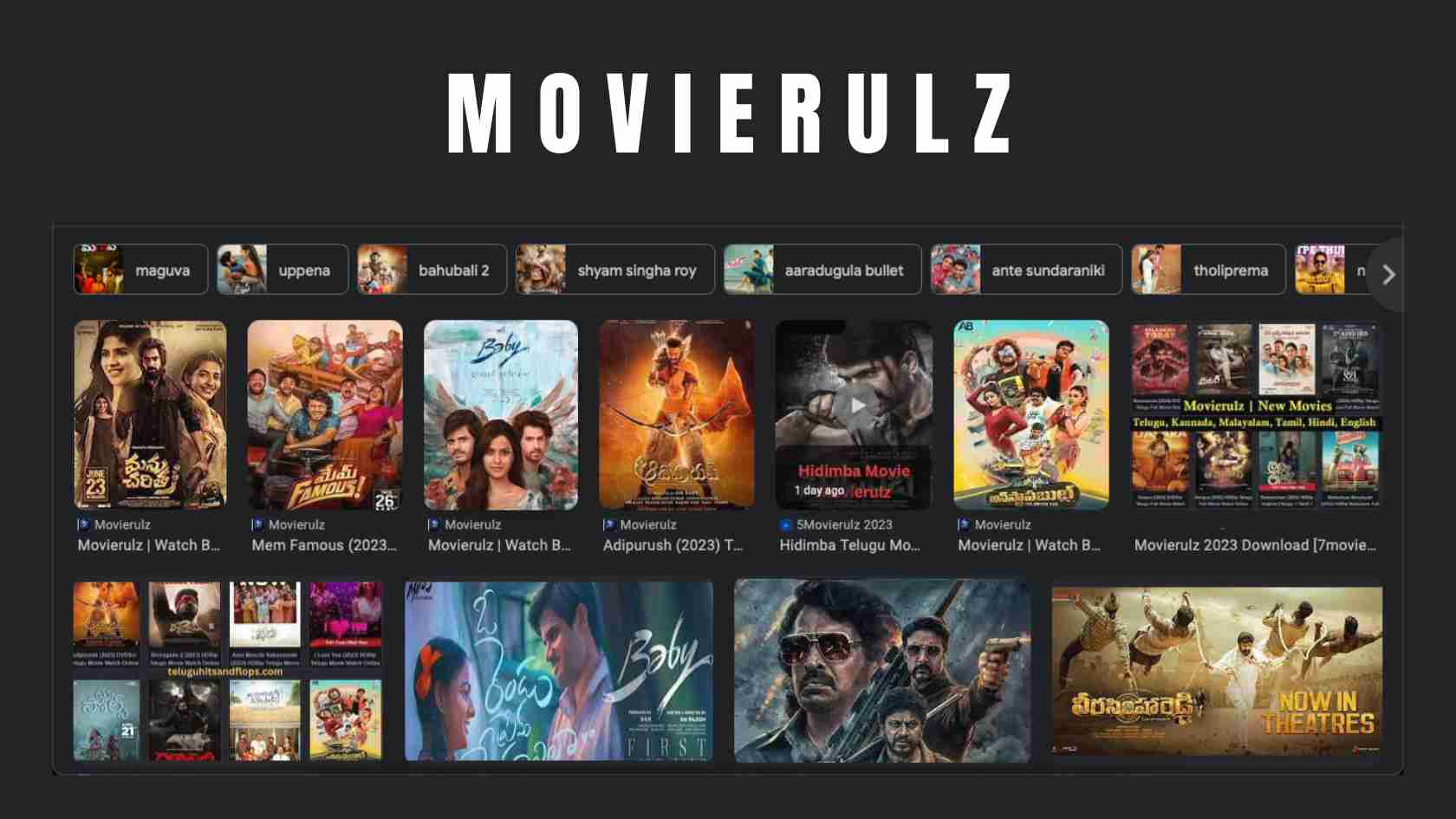Search Fails & Movierulz: What You Need To Know | Google Discover
Is the allure of instant entertainment truly worth the price of piracy? The proliferation of websites like Movierulz, offering seemingly endless access to movies and television shows for free, poses a significant threat to the entertainment industry, and ultimately, to the consumer experience itself.
The digital age has ushered in an era of unprecedented convenience. We can access information, communicate with loved ones, and yes, consume entertainment, all at the touch of a button. Yet, this accessibility comes with a dark underbelly: the rampant spread of pirated content. Websites such as Movierulz have become notorious for providing a readily available stream of films, often ripped from cinemas or sourced from leaked digital copies. These platforms thrive on the illegal distribution of copyrighted material, impacting not only the financial viability of film studios, but also the creative process itself.
It's imperative to delve into the intricacies of websites like Movierulz and understand the far-reaching ramifications of their existence and the impact they have on the film industry.
The existence of such platforms often leads to significant financial losses for film studios and production companies. The revenue generated from legitimate avenues like theatrical releases, DVD sales, and streaming services is crucial for funding future projects. When films are illegally downloaded and distributed, this revenue stream is drastically curtailed, leading to budget cuts, job losses, and ultimately, a reduction in the overall quality and quantity of content available to audiences.
Consider the intricate financial web that supports the film industry: Theatrical releases, DVD sales, and legitimate streaming platforms generate revenue, which is crucial for funding future film projects. Illegally downloaded content circumvents these channels, depriving the industry of vital funds. This revenue loss often results in budget cuts, job losses, and a decline in the quality and diversity of content. In a way, Movierulz, and similar websites, actively contribute to the slow erosion of the very industry they purportedly support.
The ease of access to pirated content also fosters a culture of disregard for intellectual property rights. When consumers become accustomed to obtaining films and television shows for free, they may not fully appreciate the value of the creative work and the economic investment behind it. This disregard can extend to other forms of intellectual property, potentially impacting industries beyond entertainment. Piracy normalizes the theft of creative content, thus devaluing the hard work of writers, actors, directors, and all the skilled professionals involved in producing films.
The use of sites like Movierulz comes with inherent security risks. These websites are often riddled with malware, viruses, and other malicious software that can compromise a user's device and steal personal information. Users who download pirated content may unknowingly expose themselves to these threats, putting their privacy and security at risk. The operators of these platforms are often not concerned with user safety, their primary goal being profit, which puts users at risk.
The very nature of how these websites operate should give users pause. They are not legitimate businesses; they are illegal operations designed to exploit the creative efforts of others for financial gain. The operators of these sites often prioritize profit over user safety, security, and ethical practices. The content provided is often low quality, filled with intrusive ads, and lacking in customer support, further highlighting the disparity between legitimate and illegitimate viewing options.
The rise of platforms like Movierulz is not merely a technological issue; it represents a fundamental shift in how we perceive and value creative content. As digital piracy continues to evolve, the need for innovative solutions to combat the spread of illegally distributed content is also required. This could involve more aggressive enforcement of copyright laws, improved technological solutions for content protection, and heightened user education on the harms of piracy. Addressing this challenge requires a multifaceted approach, uniting the efforts of legal professionals, tech experts, and educators to protect the film industry.
Furthermore, the quality of content available on these platforms often suffers in comparison to legitimate sources. The pirated versions of films are often low-resolution, contain watermarks, and are plagued by poor audio quality. Legitimate streaming services, on the other hand, offer high-definition viewing experiences, with access to bonus content, and a reliable viewing experience. Ultimately, the compromise in quality is another factor to consider when contemplating engaging with such platforms.
The debate over piracy also extends to the ethical considerations of copyright. The concept of intellectual property is designed to protect the rights of creators and incentivize innovation. When works are illegally copied and distributed, it undermines these legal protections, essentially devaluing the time and effort invested in creating something new. This creates a difficult environment for writers, directors, actors, and production staff, who may find their jobs and creative work compromised by piracy.
Furthermore, the spread of pirated content hinders a film's global reach. Legitimate distributors invest in localization efforts, creating subtitles and dubbing in multiple languages, and securing international rights for a film's release. Platforms like Movierulz circumvent these processes, often limiting the film's accessibility to its original language. This can potentially deny many viewers from experiencing the work as intended, further illustrating the detrimental effects of piracy on cultural exchange.
Here's an example table summarizing key points regarding the impact of Movierulz and similar platforms on the film industry:
| Aspect | Impact | Consequences |
|---|---|---|
| Financial | Revenue Loss for Studios | Reduced budgets, project cancellations, job losses |
| Legal | Copyright Infringement | Lawsuits, penalties, tarnished reputation |
| Quality of Content | Low-Resolution, Poor Audio | Compromised viewing experience |
| Security | Malware and Viruses | Risk to user devices and personal data |
| Creative Industry | Devaluation of Creative work | Discourages investment in new projects |
| Distribution | Limited Global Reach | Reduces access to diverse cultural content |
Legitimate streaming services and online platforms have emerged as the primary counter-strategy to piracy. The availability of a wide range of movies and television shows, coupled with user-friendly interfaces, has made these platforms a popular alternative. Services like Netflix, Amazon Prime Video, and others continue to add original content and expand their libraries. Legitimate platforms often offer added value such as behind-the-scenes content and easy access, which greatly enhances user engagement and the overall viewing experience.
Furthermore, legal action against piracy is becoming more robust. Courts and legal teams are actively pursuing cases against the operators of illegal streaming websites and download platforms. Copyright holders actively issue takedown notices, forcing websites to remove pirated content. This ongoing effort seeks to disrupt the operations of piracy sites and send a strong message regarding the consequences of engaging in illegal distribution.
As technology evolves, so do the techniques used by pirates. This requires constant vigilance and adaptation from the entertainment industry. The implementation of advanced content protection technologies is critical. These technologies include digital watermarks, which help track the source of leaked content, and robust encryption to prevent unauthorized access. The collaborative efforts between the entertainment industry, tech developers, and law enforcement agencies are essential in the ongoing battle against piracy.
The fight against digital piracy is an ever-evolving war. The success or failure of efforts to curb piracy depends on the ability of the industry, government bodies, and the public to adapt. As the demand for content grows, we must embrace legitimate avenues and be wary of the perils of platforms like Movierulz.
The solution is not simple. It requires a multi-pronged approach, involving improved legal protection, technological advancements, and, most importantly, a shift in consumer behavior. Educating the public on the ethical and legal implications of piracy is a necessary step. Highlighting the benefits of legal alternatives and the risks of engaging with illegal platforms is important. Ultimately, a collective responsibility is key to ensuring a sustainable ecosystem for creative content and protecting the industry.
As we navigate the complexities of the digital entertainment landscape, it is essential to remember that the decisions we make as consumers have real-world consequences. By supporting legal streaming services, purchasing movies and TV shows, and rejecting piracy, we can contribute to a more vibrant, creative, and sustainable future for the film and television industries. A culture of respect for creative rights will only help strengthen this cultural phenomenon.
The allure of free entertainment may be tempting, but the cost of supporting piracy is too high. The long-term consequences of these seemingly harmless choices can impact the entertainment industry. By choosing to support legitimate platforms and showing respect for copyright laws, we can help ensure the creation of innovative and high-quality entertainment for generations to come.


